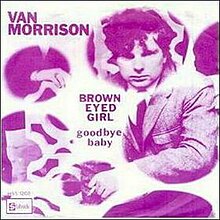Here's the story: Appellant Brown Eyed Girl, Inc. filed two notices of appeal while its corporate powers were suspended for failure to pay its taxes. Respondents filed motions in the Court of Appeal (1/2) to dismiss the appeals. Those motions prompted BEG to pay its taxes, allowing it to argue that its corporate revival validated its notices of appeal. The Court of Appeal was ok with that and denied the motions to dismiss.
Interesting issue #1 (PFR): Respondents successfully filed petitions for review from the orders denying the motions to dismiss the appeals. (See CRC 8.500(a)(1).) You don't often see successful PFRs from motions. The Supremes took up the issue of "whether a corporation that files notices of appeal while its corporate powers are suspended may proceed with the appeals after those powers have been revived, even if the revival occurs after the time to appeal has expired."
Interesting issue #2 (Stare Decisis): As cited in the Court of Appeal's order, two Supreme Court cases from the 1970's had held that revival of corporate powers validates an ealier notice of appeal. (But neither case indicated whether the revivals at issue there came before or after the expiration of the jurisdictional time to appeal.) Had the time come to overturn (or distinguish) those cases? Nope: stare decisis wins out this time:
The doctrine of stare decisis teaches that a court usually should follow prior judicial precedent even if the current court might have decided the issue differently if it had been the first to consider it. This doctrine is especially forceful when, as here, the issue is one of statutory construction, because the Legislature can always overturn a judicial interpretation of a statute. The doctrine of stare decisis is not absolute, and sometimes it is appropriate to overrule prior precedent, even precedent interpreting a statute. Nevertheless, a court should be reluctant to overrule precedent and should do so only for good reason.Interesting issue #3 (the merits): In a mere ten pages Justice Chin whips out a crisp affirmance and is joined by every other justice, except Justice Kennard. She takes the hard-line view that appellate jurisdiction is wholly dependent on the timely filing of a valid notice of appeal, and an invalid notice of appeal simply cannot be "saved." Justice Kennard goes on to argue that the cases from the 1970's "were wrong then, are wrong now, and should be overruled."
Good arguments can be made for both sides of this issue. From a practitioner's point of view, anything that helps to keep appeals alive and addressed on their merits is welcome. And this may help the State's coffers by encouraging delinquent corporations to pay their taxes.
Interesting issue #4 (lawyer MIA for the oral argument!): At the Lectern covered this point here.
Finally, point #5 -- The Van Morrison pic was a no-brainer... But who knew that Brown Eyed Girls were a K-Pop group? Now you do.




